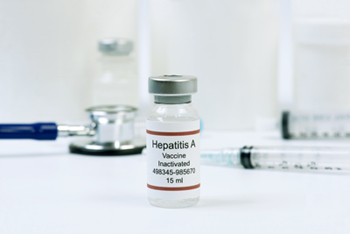Pima County, AZ health officials are reporting an increase in hepatitis A cases in 2018, prompting officials to try to increase vaccination among high risk groups.

Image/National Institute of Diabetes and Digestive and Kidney Diseases
So far in 2018, there have been 22 confirmed hepatitis A cases in Pima County. This number represents a sharp increase compared to just 5 cases in 2017 and 12 cases in 2016.
“In other parts of the U.S., hepatitis A outbreaks are becoming more common and can be very difficult to stop once they begin,” said Dr. Carlos Perez-Velez, Deputy Chief Medical Officer for the Pima County Health Department. “That is why we are working hard to get ahead of this sudden increase in cases. By working closely with our partners, we can raise awareness about what is going on and take steps to increase vaccination and education among the people most at risk in our community.”
Like outbreaks in other states, Pima County is reporting the increase is seen in people experiencing homelessness and people who use illicit drugs – both injected and non-injected.
In response to this increase in cases, the Health Department is asking healthcare providers, and those who work with people in these groups, to provide vaccination or information on where to get vaccinated to their patients and clients. Among the cases being investigated, officials recommend vaccination for:
- People who use injection and non-injection street drugs.
- Men who have sex with men.
- People who have been recently incarcerated.
- People traveling to countries where hepatitis A is common.
- People who live with or have sex with someone who has hepatitis A.
“Making vaccination available to people who are most at risk for getting and spreading hepatitis A is the most important thing we can do to stop this rise in cases,” said Dr. Perez-Velez.
Vaccination is also recommended for:
- People with chronic (lifelong) liver diseases, such as cirrhosis, hepatitis B or hepatitis C, who have a higher risk of poor outcomes if infected.
- Children, who are routinely vaccinated between 12 and 23 months of age. Older children and adolescents can get the vaccine after 23 months.
- People being treated with clotting-factor concentrates.
- Adults who have not been vaccinated previously and want to be protected against hepatitis A.
- New York: Six measles cases confirmed in Orange County
- Meningococcal meningitis strains with resistance to antibiotics are at risk of increasing worldwide
- Adam Bros. initiates recall of lettuce, cauliflower: E. Coli O157:H7 risk
- Listeria risk prompts recall of almond butter
- Rockland County: Whooping cough and measles update
- Legionnaires’ disease update at University of Wisconsin Hospital
- Hepatitis C: Three new strains found in Africa
- AFM cases rise by 7 in the US: CDC


